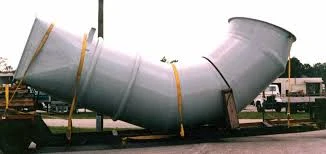
-
 Afrikaans
Afrikaans -
 Albanian
Albanian -
 Amharic
Amharic -
 Arabic
Arabic -
 Armenian
Armenian -
 Azerbaijani
Azerbaijani -
 Basque
Basque -
 Belarusian
Belarusian -
 Bengali
Bengali -
 Bosnian
Bosnian -
 Bulgarian
Bulgarian -
 Catalan
Catalan -
 Cebuano
Cebuano -
 China
China -
 China (Taiwan)
China (Taiwan) -
 Corsican
Corsican -
 Croatian
Croatian -
 Czech
Czech -
 Danish
Danish -
 Dutch
Dutch -
 English
English -
 Esperanto
Esperanto -
 Estonian
Estonian -
 Finnish
Finnish -
 French
French -
 Frisian
Frisian -
 Galician
Galician -
 Georgian
Georgian -
 German
German -
 Greek
Greek -
 Gujarati
Gujarati -
 Haitian Creole
Haitian Creole -
 hausa
hausa -
 hawaiian
hawaiian -
 Hebrew
Hebrew -
 Hindi
Hindi -
 Miao
Miao -
 Hungarian
Hungarian -
 Icelandic
Icelandic -
 igbo
igbo -
 Indonesian
Indonesian -
 irish
irish -
 Italian
Italian -
 Japanese
Japanese -
 Javanese
Javanese -
 Kannada
Kannada -
 kazakh
kazakh -
 Khmer
Khmer -
 Rwandese
Rwandese -
 Korean
Korean -
 Kurdish
Kurdish -
 Kyrgyz
Kyrgyz -
 Lao
Lao -
 Latin
Latin -
 Latvian
Latvian -
 Lithuanian
Lithuanian -
 Luxembourgish
Luxembourgish -
 Macedonian
Macedonian -
 Malgashi
Malgashi -
 Malay
Malay -
 Malayalam
Malayalam -
 Maltese
Maltese -
 Maori
Maori -
 Marathi
Marathi -
 Mongolian
Mongolian -
 Myanmar
Myanmar -
 Nepali
Nepali -
 Norwegian
Norwegian -
 Norwegian
Norwegian -
 Occitan
Occitan -
 Pashto
Pashto -
 Persian
Persian -
 Polish
Polish -
 Portuguese
Portuguese -
 Punjabi
Punjabi -
 Romanian
Romanian -
 Russian
Russian -
 Samoan
Samoan -
 Scottish Gaelic
Scottish Gaelic -
 Serbian
Serbian -
 Sesotho
Sesotho -
 Shona
Shona -
 Sindhi
Sindhi -
 Sinhala
Sinhala -
 Slovak
Slovak -
 Slovenian
Slovenian -
 Somali
Somali -
 Spanish
Spanish -
 Sundanese
Sundanese -
 Swahili
Swahili -
 Swedish
Swedish -
 Tagalog
Tagalog -
 Tajik
Tajik -
 Tamil
Tamil -
 Tatar
Tatar -
 Telugu
Telugu -
 Thai
Thai -
 Turkish
Turkish -
 Turkmen
Turkmen -
 Ukrainian
Ukrainian -
 Urdu
Urdu -
 Uighur
Uighur -
 Uzbek
Uzbek -
 Vietnamese
Vietnamese -
 Welsh
Welsh -
 Bantu
Bantu -
 Yiddish
Yiddish -
 Yoruba
Yoruba -
 Zulu
Zulu
High-Quality FRP Sump Covers for Durable Protection
Understanding FRP Sump Covers A Comprehensive Overview
In the world of construction and civil engineering, the materials used for various applications play a critical role in determining the longevity, safety, and efficiency of infrastructure. One such essential component is the sump cover, particularly those made from Fiber-Reinforced Polymer (FRP). This article explores the characteristics, advantages, applications, and the importance of FRP sump covers in modern industrial settings.
FRP, or Fiber-Reinforced Polymer, is a composite material made by combining a polymer matrix with fibers to improve its mechanical properties. The fibers can be made from various materials such as glass, carbon, or aramid. FRP is lauded for its strength-to-weight ratio, corrosion resistance, and durability, making it an ideal choice for applications exposed to harsh environments.
One of the primary functions of a sump cover is to serve as a protective lid over a sump pit, which is a low space or reservoir designed to collect liquids. Sump covers are crucial for ensuring the safety of workers by preventing accidental falls into the pit while also minimizing environmental contamination. Given this purpose, it is essential to choose a material that can withstand external pressures, chemical exposure, and environmental conditions.
Advantages of FRP Sump Covers
1. Corrosion Resistance Traditional materials like metal or concrete are prone to corrosion when exposed to moisture and various chemicals. FRP sump covers, however, are inherently resistant to rust and corrosion, making them perfect for wastewater applications and other industries where chemical exposure is a concern.
2. Lightweight Design FRP is significantly lighter than metal or concrete, which simplifies transportation and installation. Workers can handle and install FRP sump covers more comfortably, reducing the risk of injury during these processes.
3. High Strength Despite its lightweight nature, FRP offers remarkable strength and can withstand heavy loads. This capability is particularly important in industrial settings where heavy machinery may be present, and structural integrity is paramount.
frp sump cover

4. Customization FRP sump covers can be easily molded and customized to fit specific dimensions and requirements. This flexibility allows for tailored solutions that meet the unique needs of different projects.
5. Thermal Insulation FRP provides better thermal insulation compared to metals, thereby reducing the risk of heat transfer to the sump contents. This can be crucial in certain applications where temperature control is necessary for the liquid stored within.
Applications of FRP Sump Covers
FRP sump covers are utilized across various industries, including
- Wastewater Treatment Plants To cover pits that collect sewage or stormwater runoff, preventing odors and safety hazards. - Chemicals and Petrochemicals To protect containment areas from spills and environmental hazards. - Mining To provide robust covers over sumps that collect water and other materials in challenging environments. - Food and Beverage Industry Where cleanliness and chemical resistance are essential for safe operations.
Conclusion
As industries continue to advance, the need for reliable and durable construction materials grows. FRP sump covers stand out due to their exceptional properties, making them a smart choice for various applications. Their advantages in terms of strength, lightweight nature, corrosion resistance, and customizability make them an indispensable product in modern engineering and construction. By choosing FRP sump covers, industries not only ensure safety and reliability but also contribute to sustainability through reduced maintenance and longer lifespans.
Latest news
-
FRP Hood Durable & Lightweight Fiberglass Hood SolutionsNewsApr.29,2025
-
Heavy-Duty Jackhammers for Construction Work Powerful & Portable Electric Demolition ToolsNewsApr.29,2025
-
High-Strength Fiberglass Flanges FRP Blind & Custom Flange SolutionsNewsApr.28,2025
-
Fiberglass Pipe Flanges High-Pressure & Corrosion-Resistant SolutionsNewsApr.28,2025
-
FRP Fuel Tanks Durable Fiberglass & PP Composite Fuel Storage SolutionsNewsApr.28,2025
-
FRP Trough Covers Durable Industrial Protective SolutionsNewsApr.28,2025









